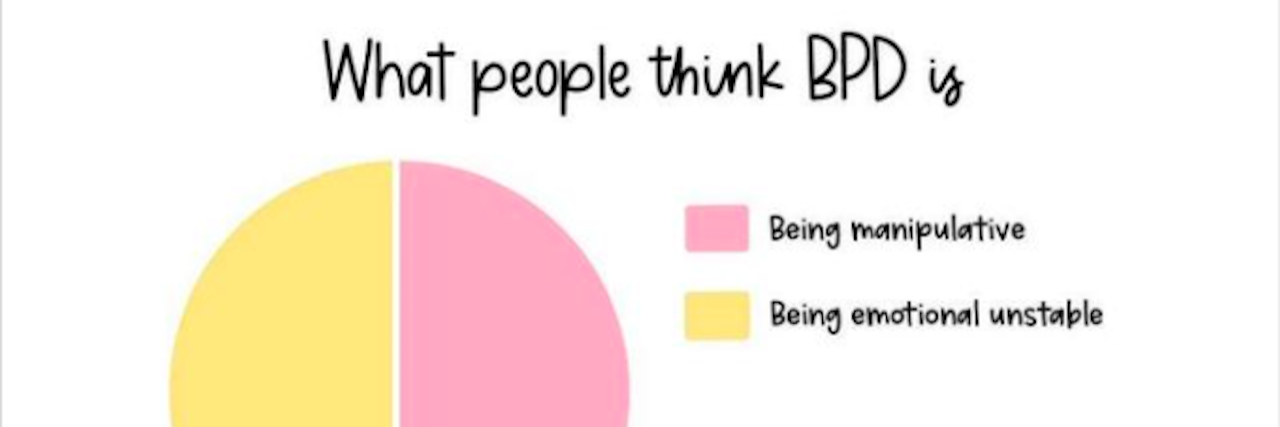Use This Graphic to Explain What Borderline Personality Disorder Is Really Like
Borderline personality disorder (BPD) is a very complicated disorder with a lot of stigmas involved, but you wouldn’t wish this type of emotional pain on your worst enemy.
Many people see BPD as someone who spends half their time being “manipulative” and the other half being emotionally unstable. It’s easy to judge someone’s behavior, but you are not able to see the amount of pain beneath it.
I’m going to try to explain what BPD feels like in a simple way, so it’s easier to understand for outsiders.
View this post on Instagram
Borderline symptoms can include (but don’t have to):
Impulsivity: Often caused by strong emotions, imagine having your heart broken, but feeling that pain 100 times. You would do anything to not feel that pain anymore, and you don’t want to wait for your long-term behavior to reward you, so you choose behavior that will soothe you faster. This can look like (but not limited to): gambling, sex, eating, lashing out, self-harm.
Mood swings: Fast-changing strong feelings that are hard to regulate or control/accept. It can feel so overwhelming that you do anything to “make them go away.”
To think in black and white: Things are good or bad, there is not much (or nothing) in between. For example: if a friend does something hurtful, they are seen as bad and the good they did can not be seen anymore.
Extreme separation anxiety: The fear of abandonment makes it hard to have healthy relationships. A lot of people with BPD (not all) have been left or hurt by important people in their life. It’s extremely painful to have to relive a similar situation again so they’d rather avoid it, or make sure it won’t happen again.
Self-harm: Self-harm or suicidal thoughts, also a complication from the other symptoms like feelings of pain/abandonment, can make you feel hopeless or not worthy. Or intense guilt from impulsive behavior might give someone with BPD the feeling that they deserve pain.
Identity issues: Identity is formed during childhood by looking at peers, parents, teachers, etc. If others see you as worthless, that’s how you’ll feel. Or if there was an unsafe home situation you don’t get to spend much time thinking who you are and what you want. This can result in not knowing who you are or mixed/bad feelings about yourself.
No matter how you experience BPD, and it’s different for everybody, know your feelings are valid and you’re not alone.
Header image via @miss_mental0/Instagram

